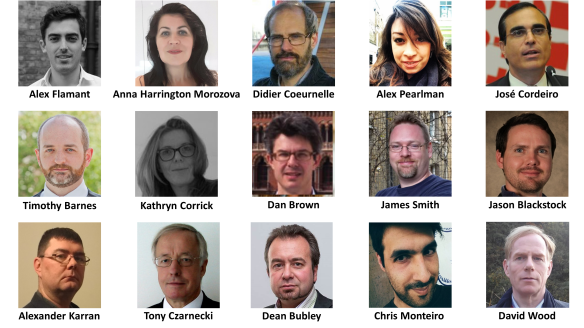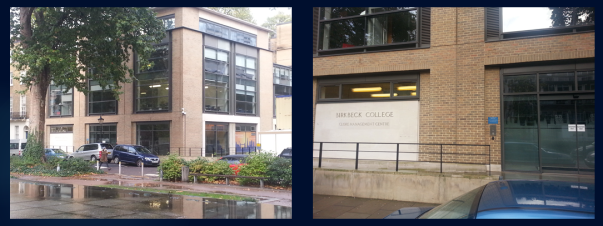At the Transpolitica 2016 event on 3rd December (preview | schedule | registration), we’ll be trialling a new system for collecting and prioritising audience questions for the speakers.
The system is called Glisser. For each talk at Transpolitica 2016, audience members will be able to visit a page in their web browser and:
- Type in short questions for the presenter, based on what the presenter has said
- Selectively upvote the questions raised by other audience members.
Convenient URL shortcodes for each presentation will be made available to the attendees of the conference. These URLs all start as glsr.it/…
Note: Glisser can be used from smartphones, tablets, and laptops.
The event chair will be keeping an eye on the incoming questions, and will prioritise asking the presenter the questions with the most upvotes.
The entire set of questions will be downloaded after the event, and used as the starting point for possible new projects by Transpolitica and/or London Futurists.
In this way, we’ll be “practising what we preach”, and using technology to help identify, highlight, and preserve the best of our collective thinking!
Usage snapshot
Here’s a snapshot envisioning user input as the first main talk is proceeding:

This shows that two questions have been posed so far – one with two upvotes, and the other with just one (so far).
In the browser, you can press the Question Mark icon and type in your question. (Hint: keep it short! And keep it civil…) Feel free to add your name at the end of the question, if you’d like to be publicly identified as the originator of the question.
You can also click on the various ‘Hand’ icons to upvote an existing question.
Press the big “Up arrow” slider to get into a screen where you can alter the order in which the questions are listed:
- With the most recent questions at the top, or
- With the most popular questions at the top.
Press the resulting big “Down arrow” slider to get back to the main screen listing.
To move from one presentation to another, enter the new URL shortcode in the browser address bar. (Attendees will be sent the full set of URLs ahead of the event, and these will also be available at the venue.)
You are welcome to trial the system before you arrive at the venue, so you can learn how it works. By all means post some “test questions”, and practice upvoting. Before the event actually starts, the test questions will be purged from the system, so there’s a fresh start once people are listening to what the speakers actually say.
FAQ on using Glisser
Q1: Glisser has lots of other features, beyond audience Q&A. Why aren’t these being used on this occasion?
A1: We’re taking one step at a time!
Q2: Aren’t “old style” spoken questions more authentic and insightful than questions typed into a small browser screen?
A2: Perhaps so. However, this event has a full agenda, with little buffer time. There won’t be an opportunity to pass a microphone around many different people in the audience, to give them all a chance to ask questions, sorry. Instead, with Glisser, there’s a greater opportunity for the best questions from the audience to be heard – where “best” is as judged by the audience as a whole. Moreover, Glisser allows a greater number of questions to be recorded, for future review by speakers.
Q3: Will there be sufficient wireless network bandwidth in the room to cope with 100+ simultaneous users?
A3: Since the event is being held in a basement room, cellular connectivity may be hit-and-miss. Therefore we’re paying the venue to provide wifi access. Details of how to access the wifi are given on the meetup page for the event and will also be availble at the check-in desk at the venue. The organisers ask that attendees refrain from video downloads or uploads over this network, to preserve bandwidth for the Glisser voting functionality. Thanks in advance!
Q4: Why does Glisser ask for an email address when users first visit one of the presentation pages? Will this email address be used for marketing purposes?
A4: No! The email addresses are listed on the admin pages alongside each question, in principle allowing the event organisers to email longer answers to questioners after the event has finished. However, London Futurists and Transpolitica will not be contacting any of the attendees in this way. And Glisser emphasise they won’t be using these email addresses for any purposes of their own.
Q5: Do users need to use a real email address when connecting to the system?
A5: No! If you wish to protect your privacy, by all means invent a fictitious email address when signing in. No two-stage validation takes place.
Q6: Why does Glisser keep warning users that “Changes that you made may not be saved” and ask “Do you want to leave this site”?
A6: Glisser seems to be overly trigger happy with such warnings. Since it seems to save questions to the cloud almost immediately (provided there’s a good network connection), you can mainly ignore these warnings.
Q7: Can users change their mind and downvote a question they have previously upvoted?
A7: That functionality seems not to be available. So exercise some discretion in picking which questions are really your favourites!


